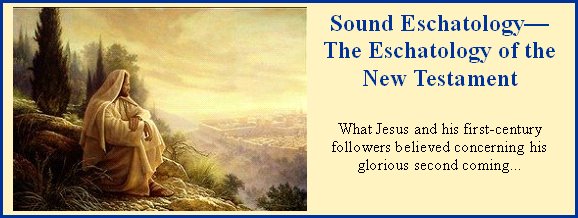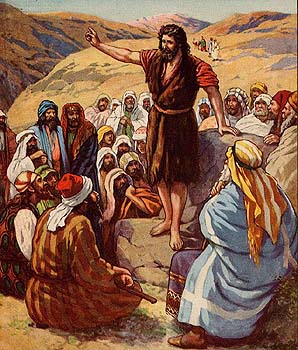 When the birth, life, and death of Jesus Christ took place at the beginning of the first century, there were many devout Jews who were waiting for the Messiah. This simple, documented fact is striking.
When the birth, life, and death of Jesus Christ took place at the beginning of the first century, there were many devout Jews who were waiting for the Messiah. This simple, documented fact is striking."Joseph of Arimathaea, an honourable counsellor, which also waited for the kingdom of God, came, and went in boldly unto Pilate, and craved the body of Jesus." (Mark 15:43, Luke 23:51)
"And, behold, there was a man in Jerusalem, whose name was Simeon; and the same man was just and devout, waiting for the consolation of Israel: and the Holy Ghost was upon him. And it was revealed unto him by the Holy Ghost, that he should not see death, before he had seen the Lord's Christ." (Luke 2:25-26)
"And as they heard these things, he added and spake a parable, because he was nigh to Jerusalem, and because they thought that the kingdom of God should immediately appear." (Luke 19:11)
A common theme, albeit an undercurrent, is apparent when Jesus came on the scene. The people were waiting for the kingdom of God and for the Christ (the anointed One of God). Not waiting as in someday, but a near expectancy, as in, any day now. It is apparent that they knew the promised time of the arrival of God's kingdom had come. They knew because Daniel clearly prophesied that during the days of the fourth world power (Dan 2:44, 7:23, 9:24), the Messiah would come to set up the everlasting Kingdom of God. They knew that they lived in that prophesied time.
Of course we must remind ourselves that when Jesus started preaching and teaching all around Judea, his message was "The kingdom of God is at hand (almost upon us)!" Click here to see all the many many times he spoke of it.
They clearly expected it to happen in their lifetime, Jesus showed up saying it had almost arrived, and indeed the consistent message of the first century church (as we proceed into the letters written among the churches especially), is that they would witness its inception with their own eyes within a few short years.

